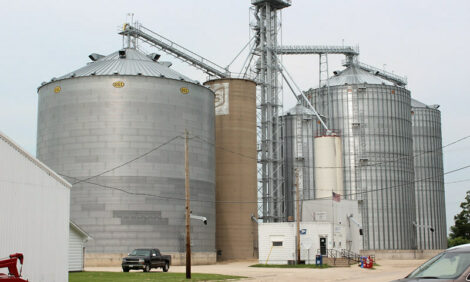



Cloned Pigs That Produce Omega-3 Fatty Acids
US - Researchers report they have created pigs that produce omega-3 fatty acids, which are known to improve heart function and help reduce the risks for heart disease, representing the first cloned transgenic livestock in the world that can make the beneficial compound.The research could be a boost to both farmers and health-conscious consumers seeking an alternative and safer source of omega-3 fatty acids. Currently, the only way for humans to realize the benefits of omega-3 fatty acids is by taking dietary supplements or by eating certain types of fish that may also contain high levels of mercury.
The results, which are being published by Nature Biotechnology, are the work of a team assembled by Yifan Dai, M.D., Ph.D., of the University of Pittsburgh School of Medicine that includes researchers from Randy Prather, Ph.D.'s group at the University of Missouri-Columbia (MU) National Swine Resource and Research Center, the laboratory of Jing X. Kang, M.D., Ph.D., at Massachusetts General Hospital (MGH), and the laboratories of Dr. Dai and Rhobert Evans, Ph.D., at the University of Pittsburgh.
To stimulate production of omega-3 fatty acids in pigs, a team led by Dr. Dai transferred a gene known as fat-1 to pig primary fetal fibroblasts, the cells that give rise to connective tissue. Dr. Prather's group then created the transgenic pigs from these cells using a method called nuclear transfer cloning. The transgenic pig tissues were then analyzed for omega-3 fatty acids in Dr. Kang's lab at MGH and by Drs. Dai and Evans at Pitt. The fat-1 gene is responsible for creating an enzyme that converts less desirable, but more abundant, omega-6 fatty acids in the animals to omega-3 fatty acids. The results could lead to a better understanding of cardiovascular function not only in pigs, but in humans as well.
"Pigs and humans have a similar physiology," said Dr. Prather, distinguished professor of reproductive biology in MU's College of Agriculture, Food and Natural Resources and a corresponding author with Dr. Dai. "We could use these animals as a model to see what happens to heart health if we increase the omega-3 levels in the body. It could allow us to see how that helps cardiovascular function. If these animals are put into the food chain, there could be other potential benefits. First, the pigs could have better cardiovascular function and therefore live longer, which would limit livestock loss for farmers. Second, they could be healthier animals for human consumption."
Source: Medical News Today








